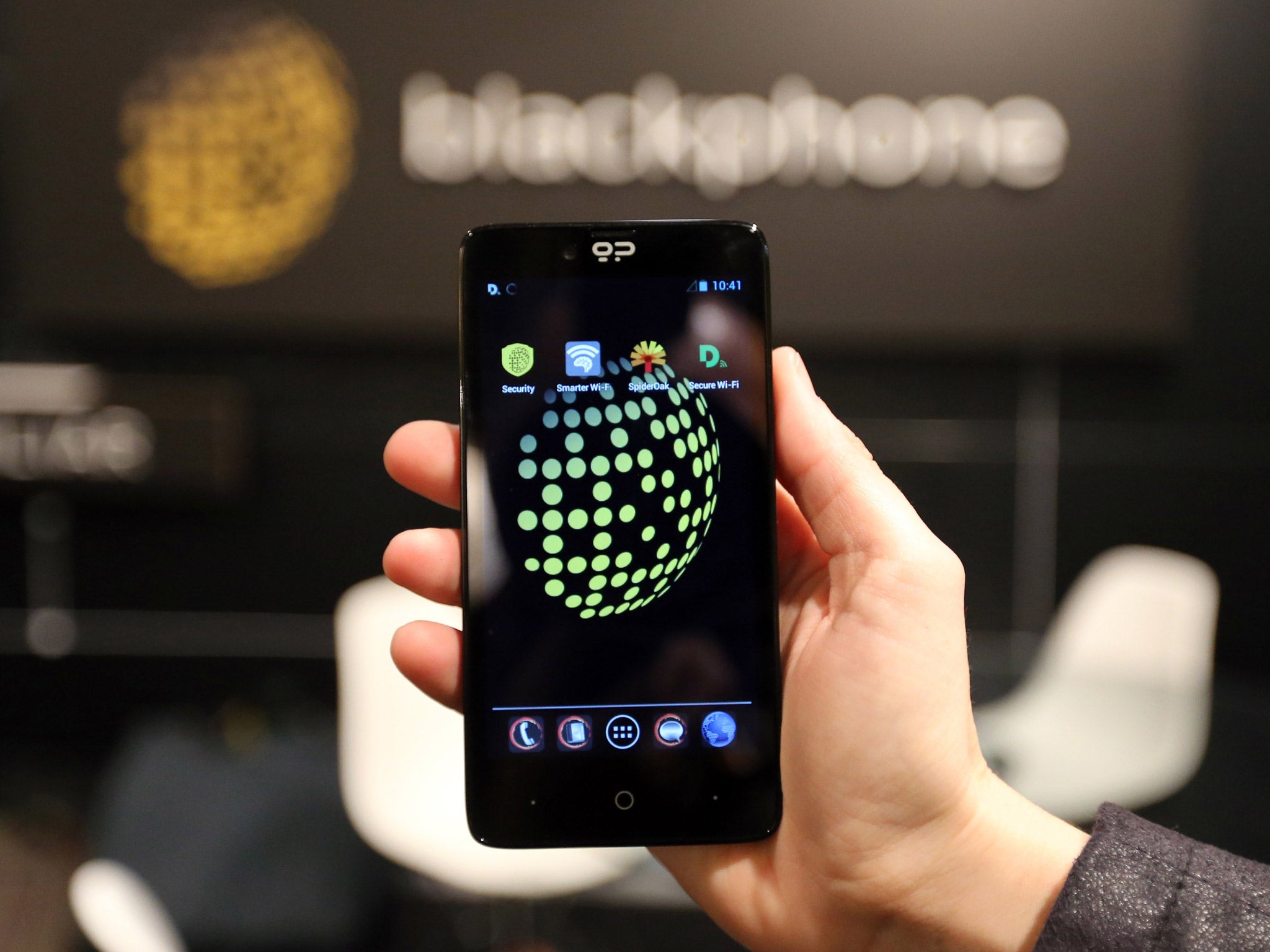Rhodri Marsden: The Blackphone comes with the promise of 'peace of mind'

A pleasure that I indulge in which other people might conceivably describe as "guilty" is to sit up late watching the QVC shopping channel. Not to buy anything, you understand – merely to watch people doing free-form verbal improvisation around, say, a diamonique bracelet.
Every so often it has a chap on who sells security cameras. These gizmos that illuminate, watch and record movement around your home are sold to fearful viewers at 1am with a sincere gaze down the camera lens and a promise of "peace of mind". Essentially, it's using paranoia as a marketing tool – and the same might be said of this week's launch of Blackphone.
The sleek, 2GHz offspring of an American security firm and a Spanish phone manufacturer, the $629 (£365) Blackphone is billed as putting your privacy first. The average smartphone is thus characterised as a kind of leaky data bucket, leaving trails of personal information across cyberspace and giving all-too-easy access to prying eyes – not least the companies whose apps we install on the promise of fun, frolic and friendship.
Blackphone's appeal centres around this idea that all other smartphones inherently compromise your privacy – after all, you've got a tracking device in your pocket that has a microphone built in, for God's sake, and with Edward Snowden's revelations about the NSA fresh in your mind, a failure to digitally protect yourself surely means that you're sleepwalking into a grim, 1984-like scenario.
Blackphone runs a version of Google's Android operating system (cue dozens of headlines saying "Paranoid Android") called PrivOS; Google-related elements have been removed and replaced with security-conscious software. Voice calls and texts are encrypted. Your contacts book is shielded from the gaze of any apps you install. Browsing and searching the web is done anonymously via a virtual private network. Cloud storage is impenetrably secure, Wi‑Fi points are checked for trustworthiness and you're given granular control over what information is available to what app. Early reviews suggest that it does all these things extremely well – but it begs the question of who this phone is actually for. Is it for people fearful of the government, or worried about jealous ex-partners, or thieves, or business rivals? Or is it for all of us? Should we all be fearful?
When you read about the things that Blackphone protects us from, the case for buying one seems persuasive. There's no doubt that our smartphones spew out huge amounts of information and that this can be scooped up by people who have sufficient motivation and know‑how. While thumbprint access, passcodes, two-step authentication and icons of padlocks on our phones certainly offer the illusion of privacy and security, an error of judgement or piece of bad luck could still see that compromised. But does anyone really care about me and my activities? The apps I use are fun to use – surely they're not manifestations of a surveillance state?
Do I need to be worried? And why should I trust Blackphone anyway? Why are all the encrypted texts and messages sent via their servers? It's a paranoid train of thought that can hurtle along and gather speed rapidly. Blackphone's initial inventory sold out immediately but I can't help but picture someone looking at me down a camera lens, telling me that $629 is a "small price to pay for piece of mind".
Join our commenting forum
Join thought-provoking conversations, follow other Independent readers and see their replies
Comments
Bookmark popover
Removed from bookmarks